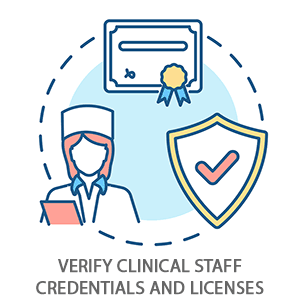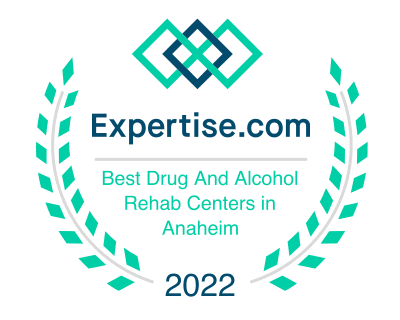Choosing the right addiction treatment program can be a challenging and overwhelming process. The initial task should be to determine if you are looking for an inpatient or outpatient program. Secondly, how long are you willing to stay in a treatment program? Learning as much as you can about what each program offers makes finding the best treatment program more likely.
If you are reading this website, you or a loved one will need an addiction treatment or information. Sadly enough, with the continuous rise of the opioid epidemic, the addiction treatment field is currently seeing an influx in deceptive advertising, false claims, and unethical practices by addiction treatment “providers.” Unfortunately, these greedy practices leave many people confused and distrustful about finding a safe and effective treatment option they so desperately need.
Today, more than ever, you need to ask questions and request concrete facts to substantiate marketing claims. Here are some essential questions you can ask the treatment center representative and the most important topics to research.
Addiction Treatment Program Reputation, Specialization, and Licensing
Reputable addiction treatment programs have a history of performance, high standards of care, and results. State licensing requirements vary widely. It is essential to check the length of time the program has been operating, the licensure of the facility, and the credentials of its medical director.
It’s not always apparent which addiction treatment programs are ethical or unethical, so be careful when researching. Take your time exploring the facility. If it sounds too good to be true, it usually is. There are no miracles, and indeed, there is no single treatment protocol that fits everyone. Your well-being and recovery success will significantly depend on the treatment facility you choose.
Clinical Staff Credentials and Licenses
Credentials and licenses are the best indicators of whether the professionals who provide and make health decisions meet nationally recognized standards for professional practice. If clinical staff isn’t licensed, they may not have the training and experience needed to provide safe and effective care. Specific credentials held by medical directors include medical licenses, board certifications, and specializations. Other addiction treatment professionals may have certifications as a LADC (Licensed Alcohol and Drug Counselor), LPC (Licensed Professional Counselor), SUDCC (Substance Use Disorder Certified Counselor), or CCDP (Certified Co-occurring Disorders Counselor).
Medical Detox
For many people, one of the most significant concerns associated with addiction treatment is the fear of getting through a withdrawal. The anticipation of withdrawal symptoms can be enough to derail a person’s motivation in attempting to get sober. Additionally, people with compromised health, which is the case for many struggling with substance use, should have the option of safely going through withdrawal in a medical facility.
At Domus Retreat, we make the process of detoxing much less daunting. Because of our direct relationship with the WAISMANN METHOD®, Medically Assisted Hospital Detoxification, we can provide you or your loved one the medical care you need to get you through what can be the most challenging time safely and comfortably. At the hospital, the medical team can utilize medications and round-the-clock care to keep you comfortable and provide the physical stabilization needed to prevent medical complications as you overcome your physical dependence on opioids and/or alcohol.
How Important is Medical Detoxification?
Although medical detoxification is not a substitute for emotional support and cannot be considered a complete addiction treatment, it is an essential entry part of a successful substance abuse treatment. Medical detox can make alcohol and drug withdrawal much easier to bear, which significantly minimizes the possibility of immediate relapse and allows the patient to adhere better to their continued recovery efforts.
The Importance of Patient Safety during Drug Detox

Unfortunately, medical professionals might stray from crucial patient safety considerations when competition or profits become a priority. At WAISMANN METHOD Treatment Center, we remain diligent in our commitment to provide our patients with the highest safety medical protocols available. We purposely avoid suggesting that we can provide overnight cures or that our protocol is the best option for everyone. Instead, we give each patient the individual time, attention, and care they deserve.
Tips to Ensure Safety During Medical Treatment
- Ask questions and request substantiated answers.
- Be aware of miracle cures. If it sounds too good to be true, it usually is. Medicine is a multi-faceted science with different effects and results based on each unique case.
- Be completely transparent about your health conditions, concerns, and history. Don’t discard any information. Sometimes what you might think is irrelevant could have a significant impact on your safety and treatment results.
- Do your own research. Unfortunately, health care professionals might behave a bit like politicians. They might overinflate their abilities, curriculum, and experience. There are specific known organizations that certify those professionals with additional value. Achieving board certification demonstrates the medical professional’s lifelong commitment to professionalism and continuous learning toward the ultimate goal of providing outstanding patient care. In fact, research has consistently shown a reduced probability of disciplinary actions and a higher quality of medical care when the physician has multiple board certifications.
- Doctors might know a lot, but there’s no harm in investigating the facts about any conditions you might have. It is essential to have a clear understanding of the effects of your medical condition in order to find the most effective solution.
Understanding the Health Effects of Drug and Alcohol Addiction
Those suffering from substance abuse face unique obstacles. A weakened immunity makes them much more vulnerable to medical complications, especially during withdrawal. Data from the National Institute of Drug Abuse (NIDA) shows that people with addiction often have one or more associated health issues, including lung or heart disease, stroke, cancer, or mental health conditions. For that reason, getting through a detox inpatient in an accredited hospital is usually the best treatment option.
Patients can undergo a comprehensive medical evaluation in a hospital, including chest X-rays, ECG, Stress test, and blood work that can show the damaging results of long-term drug use throughout the body. A hospital also allows physicians to tailor multiple detoxification protocols to each patient’s individual health needs.
Emotional Instability and Substance Use
Substance use and mental health disorders often co-exist. In some cases, disorders such as anxiety, depression, or PTSD may come before addiction. In other cases, substance use may cause or worsen those conditions.
Some people with mental health disorders may use drugs or alcohol in an attempt to relieve uncomfortable symptoms. To ensure safety during and after detox, it is vital that the patient discloses any history of mental health issues. It is also essential that detoxification centers provide patients with a few days of inpatient recovery care, so patients’ metabolism can adjust to working without the presence of drugs or alcohol.
Treatment safety and effectiveness rely primarily on the experience, knowledge, and responsibility of the treating physician.
Multidisciplinary Treatment Team
The highest quality inpatient treatment programs involve a multidisciplinary care team to address different aspects of the condition — physically, emotionally, and spiritually. In other words, the addiction treatment program should include a combination of health care professionals who work together to tailor an individualized treatment plan that works for you. All team members should be licensed to practice in their particular discipline. Be wary if one staff member wears many hats.
Mental Health Services and Addiction
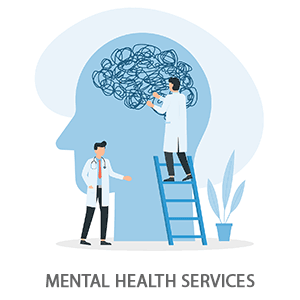
Family Involvement and Healing
Addiction often damages relationships. Friends, family members, and other loved ones are constantly feeling less than appreciated or even considered. Having emotional treatment options that can help mend those relationships creates a sense of healing and well-being for everyone involved. Family therapy helps improve communication, re-establish trust, and resolve conflicts before they become a crisis. Everyone involved needs to heal and recover from the consequences of addiction. Loved ones need to learn healthy tools to work through the chaos, maintain healthy boundaries, and build solid bonds within relationships.
Treatment Success Rate and Actual Outcomes
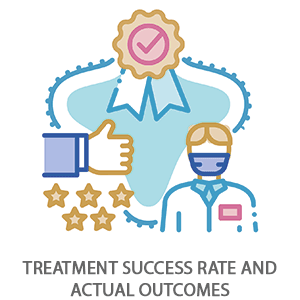
For example, here are some claims to be wary of:
- We cure addiction in two days, or even overnight.
- 100% success rates.
- Patients return to a pre-addiction state.
- We eliminate cravings.
- Patients regain immediate psychological stability.
If success rates are quoted, including the number of patients treated, this data should be collected using research-based methods or be published in peer-reviewed journals. In the USA, we have a much higher standard of care and adequately measure our success rates. Additionally, a treatment facility’s establishment date can be a trustworthy indicator of a center’s reputation and track record — it can take time for a health care organization to become reliable and trustworthy.
Cost and Insurance
The best level of care and cost will be the two most significant factors to consider when choosing an addiction treatment center. It’s important to note that the most precious commodity you have in your life and continuing the path of addiction will always be the most costly option for you— financially and physically, socially, and mentally.
There are many different ways to pay for an addiction treatment program. Some facilities are covered under health insurance policies, while others are private pay only. It is essential to decide what you are willing or can afford to pay before choosing a treatment provider.
If you do not have financial means or insurance, you can seek treatment programs that work on a sliding scale. They might be able to create a payment plan that works with your financial situation. There are also state-funded treatment programs which you can find at SAMHSA’s treatment locator, which can provide addiction treatment at no cost to you.
Specialized Substance Abuse Treatment
A good addiction treatment program does not take a cookie-cutter approach to care. It’s essential to find a program that will carefully evaluate your health needs, acknowledge your dependence history and listen to your goals before providing you with available treatment options.
Furthermore, a treatment center specializing in certain substances is usually more knowledgeable and focused on a specific condition. Not every provider has the knowledge or resources to safely and effectively provide the adequate care one needs.
Inpatient Detox Treatment Length
The length of time a person should spend in treatment is best determined by health history, age, emotional status, the substance of choice, length of use, etc. Additionally, the progress you make throughout treatment is also a significant factor. Rather than a firm specified number of days, the patients and treatment program should be willing to adjust. Most programs give an estimated time frame, but it is essential to know that if the expected progress is not made during that time, the length of time in treatment should be extended.
Look for programs ready to modify the treatment to fit your needs and not modify your health needs to fit their treatment.
Relapse Prevention Program and Recovery Support
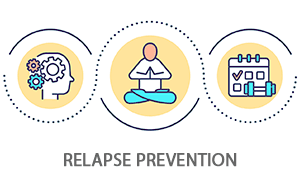
Private inpatient treatment centers such as Domus Retreat also offer relapse prevention programs. A short-term prevention program typically involves a few days to a week of inpatient care. In other words, when drug rehab ends and you go back to the world, it is crucial to have a support system in place if you feel vulnerable or overwhelmed. It is comforting to know you have a safe environment to go to, just for a few days, to discuss your feelings and thoughts. Having this additional resource is exceptionally effective in preventing relapse. Relapse prevention week is a new concept that treatment facilities rarely offer and is highly valuable for those in recovery.
The best treatment centers offer various post-treatment options including phone-based support, resources and relapse prevention options.
Choosing a Treatment Center
The most common steps in finding the best addiction treatment are usually navigating the internet and making calls. Whether you need help finding an inpatient drug rehab or finding a short-term detoxification center, you might consider facilities that have stood the test of time—those who have been providing treatment for a long time and have established credibility and reputation. Many websites have online ratings and reviews, but be careful with too many unconditional praises, as they can be created for marketing purposes.
Here are some questions when verifying providers’ claims, credibility, and, more importantly, honesty.
- Verify the information when choosing a treatment provider. If you can’t verify, it is usually not credible.
- Is the treatment facility certified by a drug and alcohol addiction treatment regulatory agency?
- Are the people you are speaking with, employees of the facility, or a referral service?
- Does a multidisciplinary team provide drug addiction treatment?
- Are there physical and mental health evaluations?
- Do you offer medical detox or replacement therapy?
- Is the treatment protocol and length of inpatient care tailored to the specific health needs of each patient?
- What are the license and credentials of the treating physician? How many years of experience do they have in the addiction field?
- What are the accommodations? Are you going to receive personal care, or are you going to share a room with strangers?
- What amenities are included in the cost?
- How long have you been providing treatment in this exact location?
- Are there specific therapies to reduce cravings?
Conclusion:
Choosing an addiction treatment program might be the beginning of a healthier way of living. The insights you obtain at a treatment center and the changes you make may become the foundation of your recovery throughout life’s challenges. Depending on your specific health needs and current circumstances, there are many additional questions you might ask potential treatment providers. Therefore, we hope this information will help you identify the most effective addiction treatment program for you. A program that provides you tools to build a solid foundation for lifelong recovery.
Don’t let another day stand between you and the freedom from substance abuse you deserve
Sources:
- SAMHSA’s State-Funded Treatment Locator
- National Institute on Drug Abuse: Health Consequences of Drug Misuse
Reviewed by Clare Waismann, RAS / SSUDCC, Founder of Domus Retreat®
All topics for the DomusRetreat.com blog are selected and written based on high editorial quality standards and cited source material. Clare Waismann, Registered Addiction Specialist (RAS), Substance Use Disorder Certified Counselor (SUDCC), and founder of Domus Retreat and Waismann Method®, reviews articles for accuracy, credibility, and relevancy. Clare Waismann as an authority and expert on opioid dependence and related topics covered on the DomusRetreat.com blog. Please see our Terms of Service for additional information and disclaimers regarding third-party sources and content for informational purposes only.
